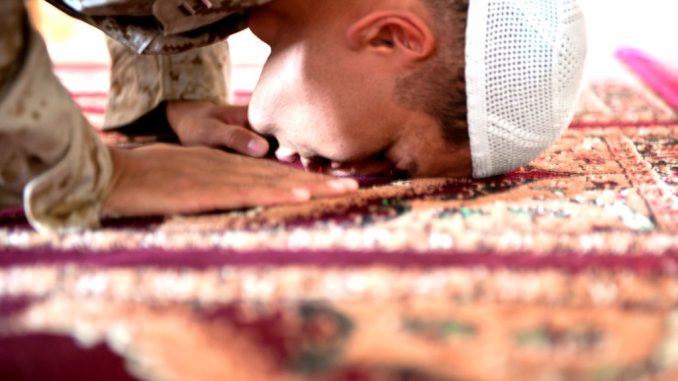
The Wisdom behind Fasting
There are reasons and wisdom behind every single act in Islam,
no matter how small. In time we may know the wisdom for be-
hind some acts, and for others we may never know. Salaat, for
instance, is a daily training for purifying the believer and re-
minding him that he is a member in a community of believers.
Fasting, on the other hand, is an annual institution containing
all conceivable attributes for human excellence. It is a training
for the body and soul, a renewal of life, encouraging the spirit
of sharing and giving. The following are some of the general
benefits:
Self-Restraint (Taqwaa)
Allah (SWT) states:
“O you who believe! Fasting is prescribed to you
as it was prescribed to those before you that you
may (learn) self restraint.”
(Al-Qur an, 2:183)
This verse indicates the first lesson or wisdom to be gained in
fasting, is self-restraint, (Taqwa) or the fear of Allah (SWT).
That is to say, fasting instills in the heart the essence of con-
sciousness of the Creator, moral courage both in secret and
manifest, guiding the heart, the seat of emotion from spoilage
and moral indecency.
It has been reported that Abdul Malik bin Al-Asma’e was in
Makkah when Ramadan came, so he decided to leave for Taif
to escape its heat. On the way, he met a Bedouin who told him
that he was heading for Makkah. Abdul Malik asked him,
“Aren’t you afraid of Makkan heat in Ramadan?” The Bedouin
replied, “It is from the heat (hellfire) I am running away.”
Fasting instills taqwaa, fear of Allah, and does so by control-
ling two aspects of the human body, which are the root causes
of human downfall, namely the stomach and the private parts.
The human body is constructed with the need to please the two
of them and, in the process, man transgresses the rights of oth-
ers, fellow human beings, and the commandments of Allah are
violated. Fasting is equivalent to life, because with the level of
taqwaa being raised, the person avoids the sins which are det-
rimental to life itself.
